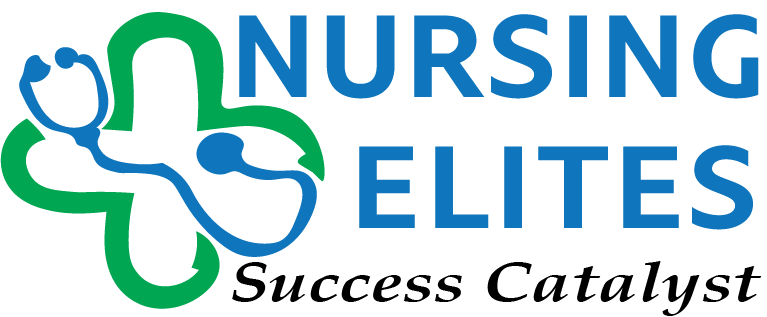Inadequate person-centered care in various states puts one-third of patients 50 years and older at risk of never having their care preferences met by clinicians. Texas attributes this challenge to an inadequate PCC workforce from a few students enrolling in PCC classes. Texas Health and Human Services (HHSC) has sponsored PCC online classes available freely to qualified applicants. Other states, like California, require all nurses to undergo an evidence-based practice focusing on a person-centered care approach as part of their licensing program. In this blog, our nursing experts explain what PCC online classes entail: what they are, how to register for one, and the examinations and certifications after the classes. We also take patient care certification examinations for students needing help.
What are PCC Online Classes?
PCC classes online are virtual academic sessions based on the principle of personalized patient care. They provide an independent environment for learning how to provide holistic care based on compassion, respect, empathy, and responsiveness. Throughout any online study, learners delve into the contexts, promotions, references, and other elements of personalized care dispensed through weekly lessons, simulations, and assignments. According to the American Association of Colleges of Nursing, the PCC classes must build upon the attributes of patient-centered care. Four attributes critical to PPC classes online are holistic, individualistic, respectful, and empowering healthcare.
Admission Requirements for PCC Online Classes
Person-centered care online classes are an excellent addition for nurses, doctors, therapists, and other caregivers directly interacting with patients. However, these classes are open to all applicants with a high school diploma or GED equivalent. Some schools require prior experience in healthcare as home aides, RNs, LPNs, or CNAs. Other schools also ask for Accuplacer score. Check the course admission prerequisites before enrolling.
Online Classes for Person-Centered Care: Course Curriculum
Certification in a centered online course requires at least 60 credit hours. The course curriculum differs with schools. However, each course must cover the following fundamentals needed for state licensing:
Introduction to Nursing Procedures (20 Hours)
The first section of the PCC classes online covers the introductory principles, protocols, and core nursing procedures person-centered caregivers administer. These classes invite participants to explore infection control measures, work environment safety and emergencies, HIV aid prevention, and kitchen safety. The learners also explore clients’ rights, domestic violence, and medical error prevention and safety.
Introduction to CPR (4 Hours)
Understanding the Cardiopulmonary Resuscitation (CPR) technique is critical to getting licensed as a person-centered caregiver. This class immerses learners in the evidence-based CPR practice. It begins with covering the fundamental principles of CPR, underscoring urgency and precision. The learners also delve into the cardiovascular system and anatomical factors influencing chest compressions, defibrillations, and rescue breathing. This class is a step-by-step segment accompanied by real-time simulations and graphics.
Measuring Patient’s Vitals (20 Hours)
Measuring patient vitals is administered in two or three PCC online classes. This course segment begins with assessing the patient’s vital signs. It studies parameters like pulse rates, oxygen saturation, blood pressure, and body temperature. Learners explore the physiological significance of these vital parameters and how they influence patient comfort. Practical scenarios include recognizing deviations in the vital sign ranges and conducting appropriate interventions to curb escalation and ensure patient comfort.
Assisting With Client Hygiene and Caring for Client’s Environment (20 Hours)
Assisting with client hygiene classes immerses learners in the steps required for compassionate and respectful hygiene assistance. Throughout the course, students delve into how to carry out hair, nail, ears, nose, eyes, and mouth care. Learners also explore how to respectfully undertake bed baths, tepid sponge baths, towel baths, and assisting clients to take a bedpan or tub bath. The class ends with a 2-hour session on caring for the client’s environment.
Assisting the Disabled Patient (6 Hours)
This module is a cornerstone in PPC as it digs into the multifaceted aspect of disability care. The module begins by covering the core principles of disability care, including personalized assistance, autonomy, and respect. Learners explore practices such as ambulation, body ergonomics, moving bed patients, range motions, bed cradles, wheelchair transfer, and positioning support devices. The last section of the module covers compassionate communication and prevention of pressure sores.
Terminal Care (5 Hours)
Terminal care is the last module in the PCC online classes. This module addresses personalized, compassionate, empathetic, and dignified end-of-life care. It delves into patients’ physical, emotional, and spiritual needs approaching the end of life. But first, the learners will go through the common illnesses of the elderly and their intervention.
PCC Online Classes: Exam and Certification
Most colleges administer the PCC final examination after the PCC online classes. An examinee must attain a specific pass score to get certification, also provided by the college. States such as Texas require at least 60 credit hours of an approved PCC course during licensing. Performing in the PCC exam and attaining a certification proves that a student attended the classes and attained the minimum credit hours required.
Person-Centered Care Classes Online: The Bottomline
Bureau of Labor Statistics reveals that employment in personal care aides and home health assistants will grow by 34% by 2030. Registering for PCC classes online today is a significant boon for students looking for employment in a vibrant industry that promises job security. For more consultation and PCC certification exam help, talk to our nursing experts via live chat or email, and we will gladly help.





Pingback: PCC Classes Online